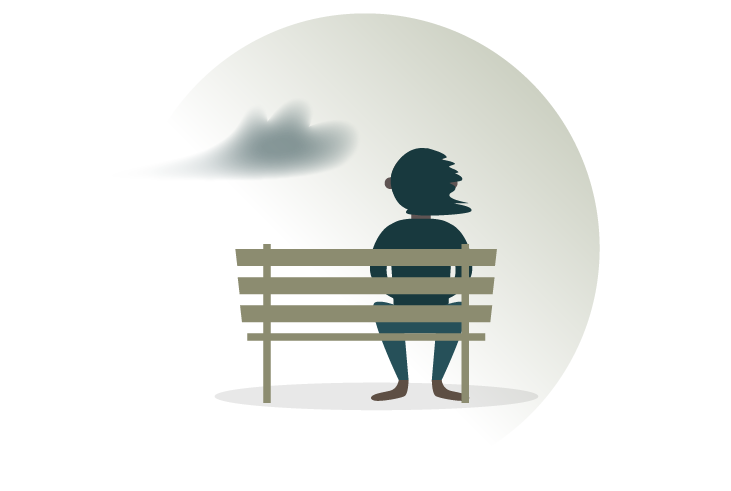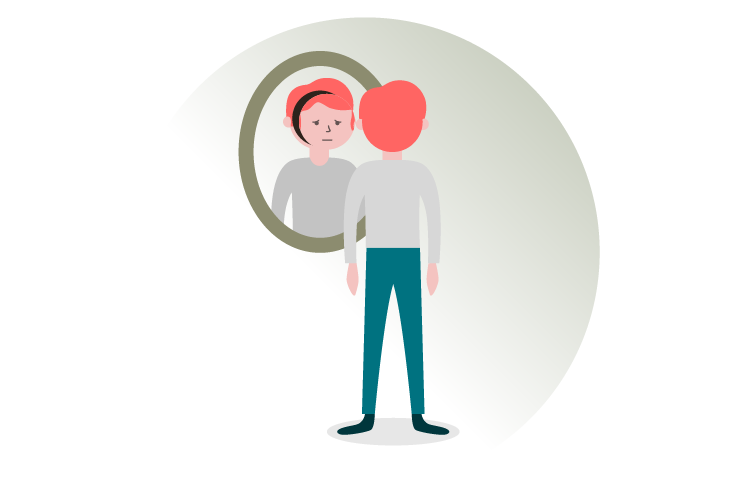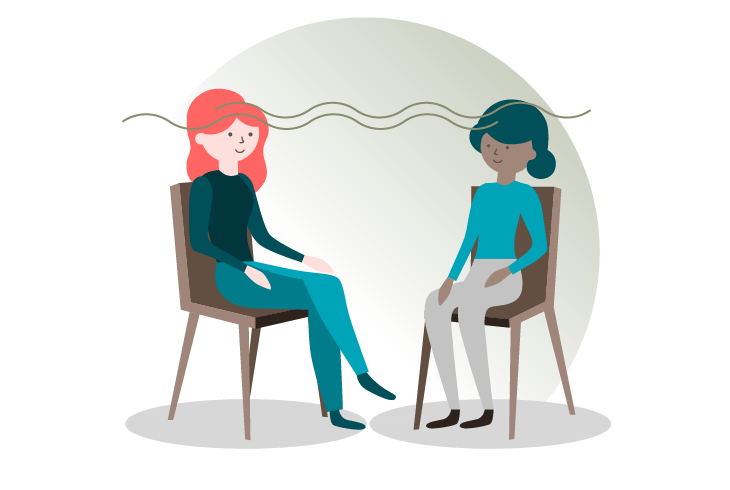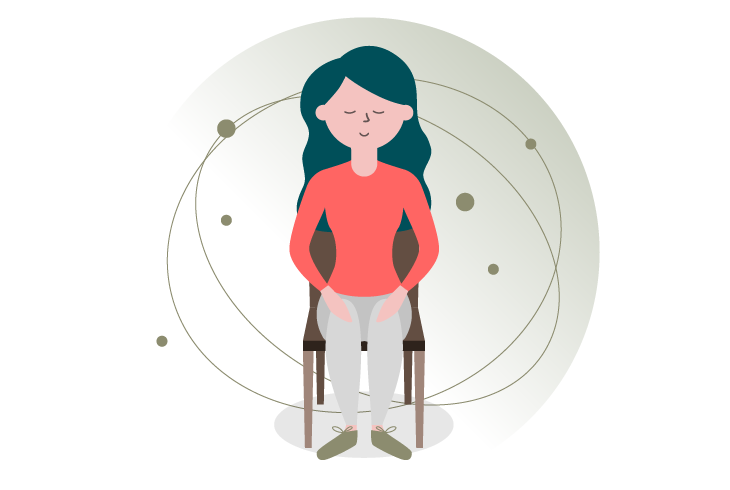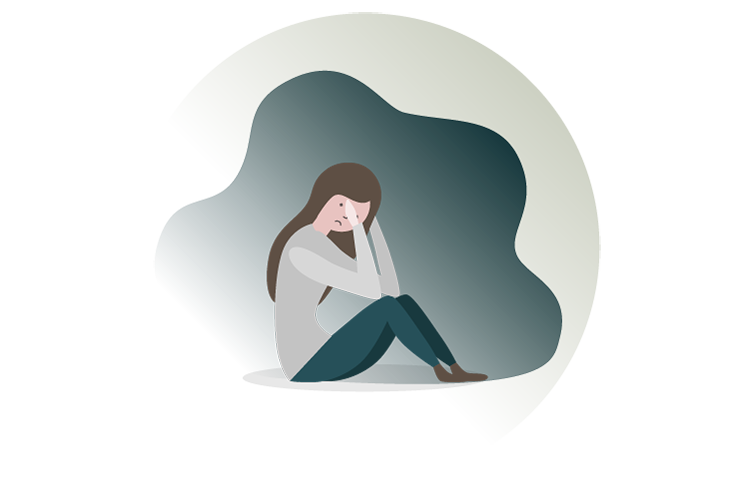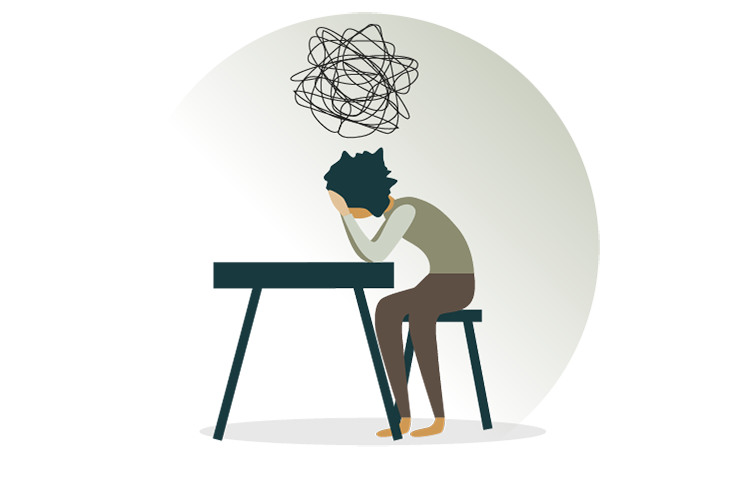Bereavement, loss and grief are universal human experiences
Although grieving is a natural process and a natural response to bereavement, loss and grief still affects everyone differently. Sometimes the anguish and heartache can leave us feeling that we are alone. Finding ways of coping with your grief and reaching out for support when it’s needed can help us feel less alone. As grief is such an intensely personal experience there is no right or wrong way to grieve. You may experience a range of difficult and unexpected emotions, such as anger, shock, disbelief, guilt and profound sadness. The pain of grief can be disruptive for our physical health, interrupting our sleep, affecting regular and healthy eating habits, as well as our ability to concentrate and think clearly. These are normal reactions to a loss, but there are healthy ways to support us during our grieving process.
How you are grieving will be influenced by many things, such as the circumstances of your loss
Death of a loved one
Divorce or relationship ending
Loss of health
Loss of employment or financial security
Death of a loved pet
Loss of home
Loved one’s serious illness
How to live with a loss?
• Acknowledge all your feelings and accept that your bereavement, loss and grief will be unique to you.
• Seek help from people who care for you or from someone professional when needed. At different times during grieving, we may need different things. If you can, be clear with your friends what you need at this stage, whether it is talking it through or having a cup of tea while watching films.
• Taking care of yourself physically will support your emotional well being, but try not to burn out or overwhelm yourself. It is important that you pay attention to how you feel in this difficult time.
How long does grieving last?
There is no timetable for grieving. Sometimes it may feel as if you will not be able to come to terms with the loss you are experiencing. The pain of bereavement, loss and grief can feel overwhelming at times. Living with any loss can be challenging and the first year of a loss can be especially difficult.
Stages of Grief
Although grief may at times feel like intense waves knocking you off your feet, over time these feeling eventually feel less intense and less overwhelming, we can begin to feel we have a firmer footing and although we still experience waves of emotion, they begin to feel less intense over time. Be patient with yourself.
Although we believe that our response to bereavement, loss and grief is unique and may affect you differently, some of our clients find it useful to learn about the five stages of grief described by Elizabeth Kubler-Ross :
- Denial – Shock and disbelief, it can be hard to accept what has happened. You expect things to be the same even though you know they are not the same.
- Anger –Experiencing the pain of grief can be difficult. Even if the loss is no one’s fault, you may feel anger and resentment at the injustice, you may also feel guilt associated with your loss.
- Bargaining – You would make any deal for this not to be real, you are not able or ready to adjust to the loss you feel.
- Depression – Profound sadness following a loss is natural.
- Acceptance – Eventually, you may notice that you are putting less emotional energy into your grieving process and that slowly, over time, you are becoming more engaged in your interests and family/social life. This is a time of adjusting and re-adjusting to the situation as it is.
Challenging times
If you can, prepare for those times that you might anticipate as particularly challenging such as anniversaries, birthdays, holidays and first anniversaries can be especially difficult. Putting some support in place around these times may help you, such as asking over a good friend/s, family member or find a bereavement group to share your feelings at this time or talk with a counsellor. You might take a day off or do something to remember and honour your feelings. Don’t be afraid to talk about the person who has died or your own experience of loss; people may not mention it because they don’t want to upset you. Seek out people who value your need to talk about your loss, are able to give you some space and can listen with empathy and compassion.
How to cope with grief?
Grief can feel isolating; sometimes, our own responses to our grief are also confusing and contradictory. One moment we may be laughing and the next moment overwhelmed with tears. You can have a good day and then wake up the next day feeling worse. At times we will want to have some time on our own with our grief, and at other times we will want to draw on support from others around us.
Generally, over time, our memories do fade, the physical details of our loved one become less sharp and for some people this can feel like another loss or even a betrayal of your loved one. It’s important to remember that even though the physical details may become less sharp, the love and affection that we feel about our loved ones, is something that nothing and no one can take away from us and not even time can change what is in our hearts.
When to seek professional help? - Warning signs of depression
It is common for a grieving person to feel sad and depressed, but there is a difference between natural grief and clinical depression. If the feelings don’t fade over time or they get worse it may be time to seek help. If you are continuing to neglect yourself or your family by not eating well or feel unable to perform your usual daily activities, if you are using alcohol or drugs because you are not feeling able to cope, or if you are continuing to find it difficult to get out of bed, your GP or a counsellor can help if you feel you are not coping.
If you are feeling suicidal at any time during your grieving process, seek help immediately.
Samaritans:
Helpline: 116 123 (free of charge from a landline or mobile)
Email jo@samaritans.org
www.samaritans.org
24 hr helpline offering emotional support for people who are experiencing feelings of distress or despair, including those which may lead to suicide
Calm:
0800 585858
www.thecalmzone.net
Campaign Against Living Miserably Help and support for young men aged 15-35 on issues which include depression and suicide.
HopeLine UK
0800 068 4141
www.papyrus-uk.org
For practical advice on suicide prevention for under 35s
Childline
Childline
0800 1111
For children and young people under 19
Nota Bene – this phone number won’t show up on your phone bill.

